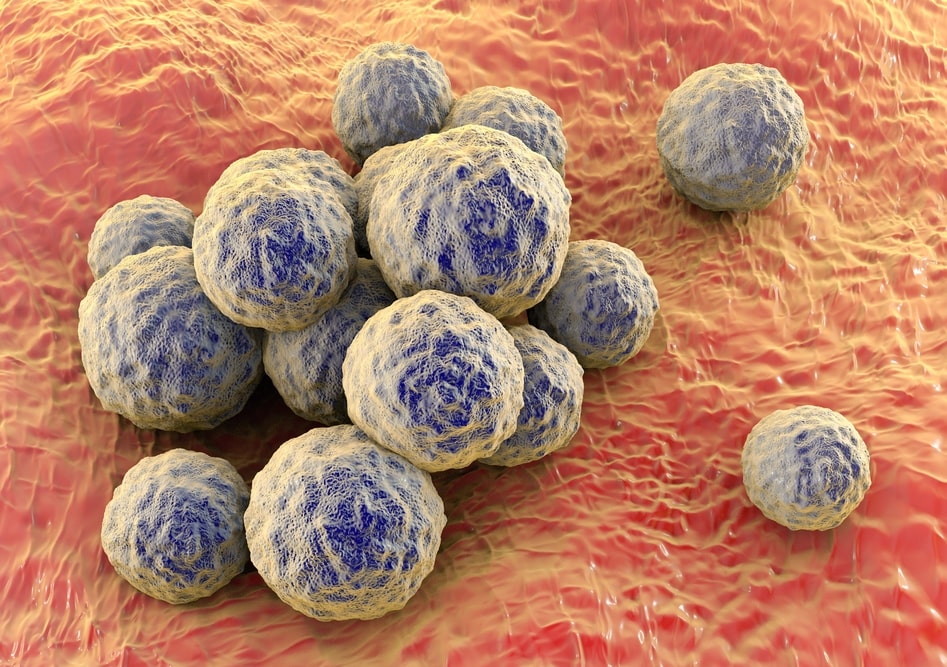Pregnancy is a time of great joy and anticipation for many couples, but for those with Staphylococcus aureus, the potential risks and complications may be a source of concern.
We will examine the potential risks associated with a man with Staphylococcus aureus attempting to impregnate a woman and will offer advice on how couples can minimize their chances of complications.
What is Staphylococcus aureus?
Staphylococcus aureus, or staph, is a type of bacteria that is commonly found on human skin as well as in the nose, armpit, groin, and other areas of the body.
While it is normally harmless, it can cause a variety of infections, ranging from minor skin infections like boils and impetigo to more serious infections like pneumonia, bloodstream infections, endocarditis (infection of the inner lining and valves of the heart), and sepsis (a life-threatening infection of the bloodstream).
Antibiotics can treat staph infections, but some strains have developed resistance to many commonly used antibiotics, making treatment more difficult.
The Joy of Pregnancy

Pregnancy is a truly magical time filled with joy and wonder. From the first flutters of movement in your belly to hearing your baby’s heartbeat for the first time, every moment is a joy to experience.
One of the greatest joys of pregnancy is the anticipation of meeting your little one. As you watch your belly grow and feel your baby’s kicks and movements, you can’t help but imagine what they will look like, sound like, and who they will become.
This excitement is like nothing else and fills your heart with a boundless sense of joy. Another joy of pregnancy is the deep connection and bond that forms between you and your baby.
As you nurture and care for your growing baby, you become acutely aware of their every need and wish for their happiness and health.
The love and devotion that you feel for your baby before they even enter the world is indescribable. Of course, pregnancy also comes with its own set of challenges, but the joy that comes with it far outweighs any temporary discomforts.
Through every hurdle, you grow stronger and more resilient, preparing yourself to be the best parent you can be.
Staphylococcus aureus infections in specific scenarios
Staphylococcus aureus can affect both male and female fertility. It is important to be aware of the potential impact on reproductive health and seek medical advice when planning for pregnancy.
Additionally, infections in the female reproductive system require proper diagnosis and treatment to minimize risks.
1. Male fertility
Male infertility is defined as a male’s inability to cause a fertile female to become pregnant naturally within one year of having regular unprotected sex. This definition is based on the fact that most fertile couples become pregnant within a year of attempting to conceive.
Testicular failure, urogenital abnormalities, immunologic problems, varicocele, genetic abnormalities, endocrine disturbances, systemic diseases, cancer, genital tract infections, environmental agents, distorted lifestyle, and gonadotoxic factor exposure can all cause male infertility.
Testicular failure can occur as a result of a number of factors, including age, injury, infection, radiation, chemotherapy, and certain medications. Sperm transport can be hampered by urogenital abnormalities such as blocked or damaged tubes.
Immunologic issues can cause the body to attack its own sperm, whereas varicocele is an enlarged vein within the scrotum that can overheat the testicles and disrupt sperm production.
Infertility can be caused by genetic abnormalities such as Klinefelter’s syndrome, as well as endocrine issues such as low testosterone levels.
Male fertility can be affected by systemic diseases such as diabetes, hypertension, and thyroid disorders, as well as cancers such as testicular cancer.
Infertility can be caused by genital tract infections, as well as environmental factors such as toxicity or radiation exposure.
Finally, certain lifestyle habits such as smoking, binge drinking, and drug use can all contribute to male infertility. Chemotherapy, radiation, and environmental toxins can all cause testicular damage and impair male fertility.

Can a man with staph infection impregnate a woman?
The question of whether a man with Staphylococcus aureus can impregnate a woman does not have a definitive answer.
Because there are no studies providing direct evidence that a man with Staphylococcus aureus infection cannot impregnate a woman.
However, a study on the pathogenesis of Staphylococcus aureus in reproductive tract infections revealed that this bacteria can affect the reproductive tract of a man such as the prostate (prostatitis), epididymis (epididymitis), and pelvic region (pelvic inflammatory disease).
These infections can lead to a range of health problems including infertility and subfertility. However, it is important to note that not all individuals with Staphylococcus aureus infections develop these complications.
Another study on the impact of male genital tract infections on sperm function and fertilization suggests that genital tract infections can cause sperm damage, reduce sperm motility, and impair fertilization.
However, this study does not specifically address whether Staph can prevent a man from impregnating a woman.
Can a woman get pregnant with a staphylococcus infection?
This question is similar to the above. There’s no study on whether a woman can get pregnant with a Staphylococcus infection.
Having or getting a Staph infection, on the other hand, does not appear to increase the chances of becoming pregnant.
Staphylococcus has the ability to colonize the reproductive system and cause infections.
But antibiotics can be used to treat these infections, and early detection and treatment are critical to reducing the risk of complications.
Pregnant women should practice good hygiene and seek medical attention if they experience any symptoms or infections.
Importance of seeking medical advice and treatment
If you have concerns about Staphylococcus aureus and pregnancy, it is essential to consult with a healthcare provider.
They possess the knowledge and expertise to assess individual situations and provide appropriate guidance.
They can provide appropriate guidance, conduct necessary tests, and recommend the most suitable treatment options.
Open communication with your healthcare provider is crucial for ensuring the well-being of both the mother and the baby.
What Next?
While Staphylococcus aureus can cause infections in the reproductive tract, which can lead to complications such as infertility, there is no evidence that a man with Staphylococcus aureus cannot impregnate a woman.
The question of whether a man with Staphylococcus aureus can impregnate a woman does not have a definitive answer.
If you suspect you have a bacterial infection, you must seek medical attention immediately to receive appropriate treatment and avoid any potential complications.
